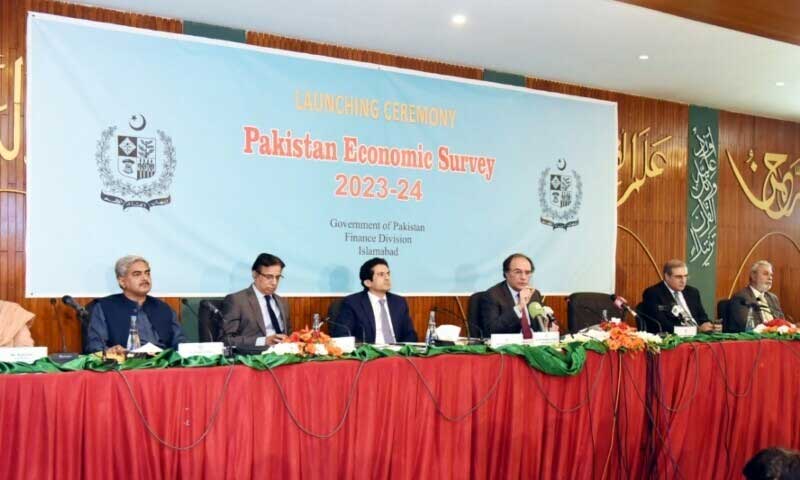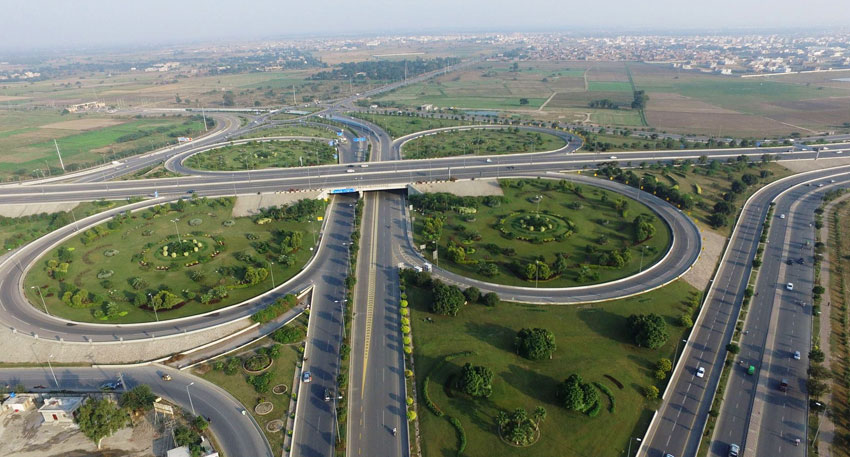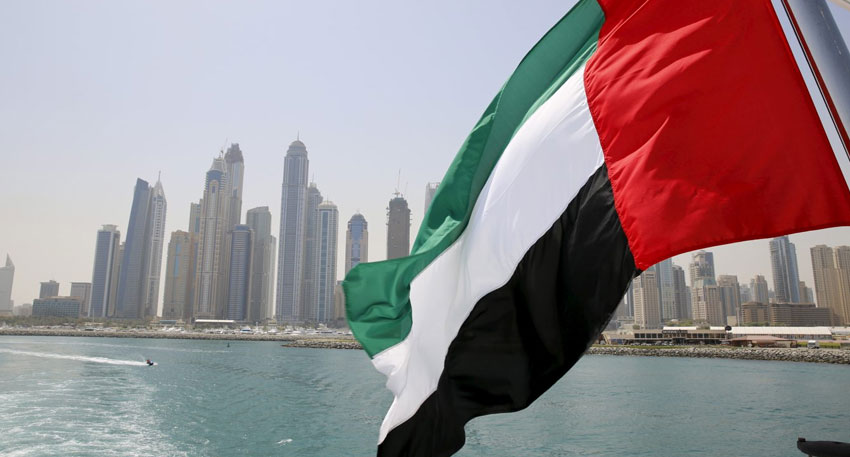
The PES is an annual report that charts the country’s economic progress for the outgoing financial year, ie, from July 1, 2023 to June 30, 2024. It is one of the stages of the federal budget process.
The report highlights country’s performance in different sectors, typically covering key indicators such as GDP growth, inflation, trade, and investment, as well as sector-specific performance in different sectors such as agriculture, industry, and services.
Unveiling the Pakistan Economic Survey 2023-24, the Finance Minister said that Pakistan missed most economic targets set during the previous budget owing to tough conditions. However, he added, agriculture grew at an unprecedented rate.
About inflation, he said, “It is important to see the level of inflation in 2022-23. [In this] year, the Pakistani rupee suffered nearly 29pc depreciation and the foreign reserves went to just two weeks of import cover.”
Also read: Budget 2024-25: Govt set to cause public more anguish business
The current fiscal year had begun under Prime Minister Shehbaz Sharif’s leadership, before a brief caretaker administration, and was now back under PM Shehbaz’s elected government for the next five years, Aurangzeb said.
Aurangzeb, who always believed that Pakistan would need to turn to the IMF programme, said, “There is no plan B, and if there was a plan B, the IMF wouldn’t be called a ‘lender of the last resort’.”
He said that the nine-month Stand-by Agreement signed by the prime minister with the IMF had brought the country to a better place.
“Without it, God forbid, we wouldn’t be here discussing the targets. We would have been in a different situation, and we would have had the same discussion in a very different context,” he said.
Saying that the impact on large-scale manufacturing was inevitable, he lauded agriculture as a “saviour” and a significant upside for future growth.
He also noted that revenue collection had grown by nearly 30 per cent, an “unprecedented” increase.
He also gave credit to the provinces for delivering on their surpluses, which had enabled the government to meet its commitment to the IMF. He also talked about the significant reduction in the current account deficit, from an estimated $6bn to around $200m.
In the three months of 2024, he maintained, the country experienced a current account surplus. He said, “I don’t have the final number, but if I look at the $3.2bn remittances for the month of May, I’m pretty sure there will be another month where we will show a surplus. So my belief that by the time we come into government, the current account deficit would be less than a billion dollars had turned into a reality.”
He lauded successive administrations for the relative economic stability seen over the past few months. “Firstly, the caretaker administration took administrative measures, [launched a crackdown] against hundi hawala, and stopped smuggling, etc.
The minister shared, “In a bid to regulate foreign exchange activities, we instructed banks without exchange companies to set up their own To me, that is a structural way of bringing the entire foreign exchange activity into a regulated environment.”
Expressing optimism that this move would prevent speculation on foreign exchange from returning to the country, he said, “God willing, this will ensure that speculation does not come back to this country.”
He said that in the private sector, market predictions had suggested the dollar rate would soar to Rs300 or even Rs350. He noted, “Because I was a part of the private sector at the time, we were following it and they were saying that it would be more than Rs300 and even Rs350.”
He acknowledged that the previous track and trace system had failed, and said that the government was now moving towards digitalisation to minimise human intervention.
He highlighted the significant issue of electricity theft, estimated at Rs500bn.
Being optimistic about the upcoming fiscal year, he said it was a “big thing” that they would start on a positive note. He shifted focus to inflation, noting that it had peaked at 48pc and had since decreased to 11.8pc in May.
The minister stressed the significance of core inflation and food inflation also coming down.
He attributed the Monetary Policy Committee’s decision to reduce interest rates to these factual improvements in the economy.
He acknowledged the State Bank of Pakistan’s purview over monetary and exchange rate policies. He said, “The State Bank saw enough cushion to start moving it in the right direction.”




